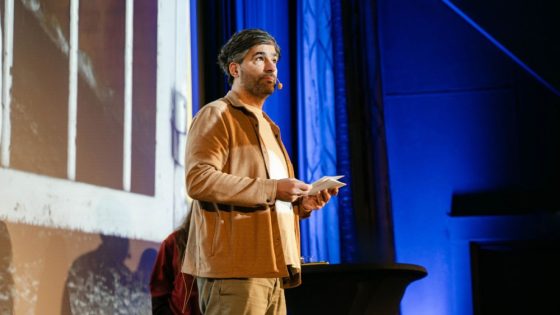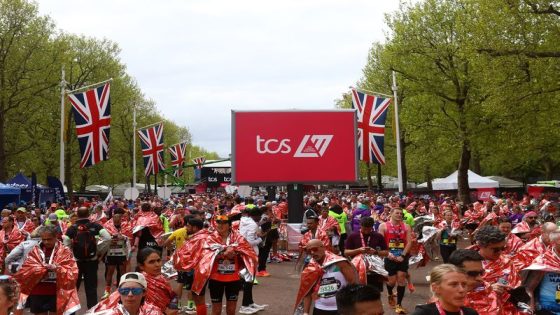SPRINGFIELD — Illinois Senate Democrats closed in Sunday on approving the state’s next budget, keeping much of fellow Democrat Gov. J.B. Pritzker’s plans in place but boosting expected spending by $400 million while also giving themselves, House representatives and many top state officials a 5% bump in pay.
The Senate was poised to vote on the $53.1 billion fiscal plan in the thick of the Memorial Day weekend as Democratic majorities in both the Senate and House continued to try to find common ground on some key sticking points, and Republicans weighed in but without enough political power to affect the outcome. The plan includes $750 million in tax hikes but also includes some cuts to the governor’s plans that supporters say will help lower- and middle-income Illinois residents.
“We’re going to get it done. We’re grinding away,” Senate President Don Harmon, an Oak Park Democrat, said Sunday afternoon, adding: “We’re staying in close contact with the House. We live by the mantra ‘no surprises,’ and we’re going to try to make sure that we don’t send anything to the House that they’re not ready to receive.”
Amid the Democratic squabbling, lawmakers blew past a self-imposed Friday deadline and the Illinois House went home Saturday night with plans to return after the holiday weekend. That tees up a final budget passage for midweek.
Some of the biggest highlights in the evolving 3,400-page fiscal plan include a slight hourly boost for service providers who help the developmentally disabled, a more generous child tax credit and a refusal to lower a built-in annual increase to the standard state income tax exemption, which experts said would have harmed lower-income families.
As negotiators continued working through late tweaks to the budget, the Senate voted to send Pritzker a controversial environmental measure that would regulate carbon capture and sequestration.
The latest budget details were revealed at a roughly hourlong hearing Sunday morning where state Sen. Elgie Sims, the chief budget negotiator for the Senate Democrats, said his caucus’s spending plan comes out to about $53.1 billion, about $400 million more than Pritzker’s proposed $52.7 billion in spending. The legislation emphasizes education, public safety, combating homelessness, and a wealth of other state services, Sims said.
Not mentioned during the hearing was that the spending plan calls for a 5% pay hike for lawmakers that would boost annual base pay for all 177 members of the General Assembly to $93,712. Many lawmakers receive additional stipends for holding leadership positions or chairing committees.
Pritzker last year used his veto powers to reduce pay increases for lawmakers, statewide elected officials and agency heads under his purview after the legislature approved raises that were above limits set in state law. The spending plan this year also includes raises of about 5% for the governor, lieutenant governor, secretary of state, attorney general, comptroller and treasurer and the heads of executive agencies. Pritzker, a billionaire Hyatt Hotels heir, does not collect a salary as governor.
Focusing on the full budget plan, one Republican, state Sen. Chapin Rose, complained that the Democrats’ fiscal proposal calls for spending too much, including for noncitizens receiving health care, as well as on funds for the migrant crisis in Chicago.
The plan includes the $182 million Pritzker proposed to dedicate toward the ongoing migrant response as part of an agreement with Chicago Mayor Brandon Johnson and Cook County Board President Toni Preckwinkle announced earlier this year.
“That’s an interesting budget,” Rose said.
He also said the Senate’s plan doesn’t do enough to fund direct service providers who help the developmentally disabled, saying “it becomes harder and harder for these providers of these vital services to find anybody willing to do the job.” Those workers would receive up to a raise of up to $1 per hour in the proposed budget, which is short of the $3-per-hour raise they’ve sought.
Sims, meanwhile, insisted the Senate sought to make a “considerable effort” to invest in the workers “because we recognize the tremendous work that they do.”
“We understand that they are engaged in immensely challenging services and they are really doing God’s work, and we appreciate that. But what we are also trying to do is ensure that we have competitive wages, and we have done that,” Sims, of Chicago’s South Side, said. “We are trying to invest in this community to make sure that they have everything they need to be successful. We’ll continue to do that.”
The budget also includes $14 million for the Department of Early Childhood, the new agency that both the House and Senate voted to create, and sets the salary for the new agency’s secretary at $215,000 per year.
Despite Johnson’s sojourn to Springfield earlier this month, the Democrats’ budget plan didn’t change significantly to reflect City Hall’s wish list, including the mayor’s request for a $1 billion increase in funding for Chicago Public Schools.
Sims said that while the budget doesn’t give Johnson the CPS funding boost, the plan’s tax package includes additional assistance for all municipalities across the state, including Chicago.
“There were significant resources … from the changes that we made in terms of the local government package,” Sims said. “Just like all the municipalities, (the) city of Chicago would see a significant share of those revenues.”
That measure includes a deal to eliminate on Jan. 1, 2026, the 1% statewide grocery tax, which flows to local governments.
To make up for the lost revenue, municipalities — both those like Chicago with broader home-rule powers to raise taxes on their own and non-home-rule communities — would be granted the ability to levy their own 1% tax on groceries. Towns without home rule would be given the ability to tack on an additional 1 percentage point tax on general retail sales without having to ask voters to improve the increase through a referendum.
The arrangement also includes $600 million in additional funding for municipalities for local road projects.
The proposal on the table was enough to win the support of the Illinois Municipal League, which represents local governments across the state.
The revenue bill that the state Senate introduced includes most of Pritzker’s flagship proposals for corporate tax hikes, including caps on sweeteners for retailers and other corporations. It also proposed raising the state sports betting tax in a tiered structure, with the largest sportsbooks paying a 40% tax and the smallest paying 20%.
The sports betting structure as proposed in the Senate bill would bring in a little more than $200 million, a Pritzker spokesperson said, similar to the estimate with the flat tax Pritzker proposed earlier this year.
Other changes from Pritzker’s proposal would give some in Illinois more financial flexibility.
Enacting a child tax credit, for example, has received bipartisan support, and the Senate version of the bill includes a larger amount than Pritzker’s February proposal.
The Senate bill calls for a child tax credit that will cost the state $50 million in the upcoming fiscal year and $100 million in following years, state Sen. Celina Villanueva, a Chicago Democrat, said during a hearing Saturday. It would also cover families with children younger than 12; Pritzker’s proposal was for families with children under 3 and was estimated to cost the state $12 million.
A Pritzker proposal to lower a built-in annual increase to the standard state income tax exemption — a $93 million revenue booster for the state that would have cost taxpayers a small amount of money on their income tax returns — did not appear in the Senate bill released this weekend. Because the exemption is the same regardless of income, some experts previously said the proposal would have been harder on lower-income families.
In other business, a controversial bill regulating carbon capture and sequestration projects is heading to Pritzker’s desk after long debates in the House and Senate. The legislation, which passed the Senate 43-12 Sunday, would also place a two-year moratorium on all carbon pipeline projects as the state awaits federal guidelines.
An aspect of the bill that has faced opposition from House and Senate Republicans in addition to some Democrats involves the Mahomet Aquifer, which supplies drinking water to about 500,000 people across 14 counties in central Illinois, as a potential location to construct pipelines.
Rose, of Mahomet, said he wants the aquifer excluded from development projects, in part because he doesn’t trust that state environmental regulators will ensure the water supply is protected from carbon dioxide contamination during any work. The senator spoke passionately on the Senate floor about a methane gas leak into the aquifer in 2016 that still has yet to be fully rectified, spouting the F-word at one point during his remarks.
“I don’t want to hear a damn thing about cleaning up the environment when these people can’t drink their water,” Rose said after apologizing for the earlier curse word.
Bill sponsor Sen. Laura Fine, a Democrat from Glenview, said she understands concerns about the importance of the aquifer for many Illinoisans and there are protections in place to make sure potential projects do not lead to future contamination. To address these issues in addition to other worries over compensating landowners in potential cases of eminent domain when implementing carbon capture, Fine agreed to hold meetings over the summer with concerned legislators and advocacy groups.
Pritzker praised the measure in a statement, saying, “Illinois now lays claim to some of the most ambitious and equitable climate and clean energy laws in the United States.”
In another key legislative area, several Pritzker proposals on health care were sent to his desk. His package of insurance reforms, including restrictions on so-called step therapy and certain short-term, high-cost health insurance plans, passed with bipartisan support in both chambers.
And as part of an administration initiative aimed at improving Black maternal health outcomes in Illinois, a bill expanding insurance coverage of doula and midwife services made it through the General Assembly and is set to be signed into law. Pritzker included $23 million in his proposed budget for “birth equity efforts.”
The bill requires insurance coverage of services provided by doulas and licensed midwives in regard to births, miscarriages or abortions, including home visits and home births. The cost to the state was an estimated $260,000.
Another measure prohibiting the use of artificial intelligence to create child pornography, regardless of whether it involved real children or fake images that evoke obscene imagery, passed the Senate without opposition and heads to Pritzker’s desk.
And, fulfilling a top priority of the Illinois AFL-CIO, both chambers also voted to prohibit employers from holding mandatory meetings with anti-union or otherwise political or religious messages for employees. The bill passed nearly on party lines, and, if Pritzker signs it, Illinois would join a handful of states with similar legislation.
In another closely watched piece of legislation, the General Assembly without any opposition passed a measure to tighten identification standards for human remains that are being handled by funeral homes and enhance punishment for businesses that break the law. Among other measures, it tightens funeral home regulations to ensure human remains in their possession are identified properly.
The bill, which now awaits Pritzker’s signature, comes after a funeral home in central Illinois last year was found to have given dozens of families the wrong remains.
Source Agencies



